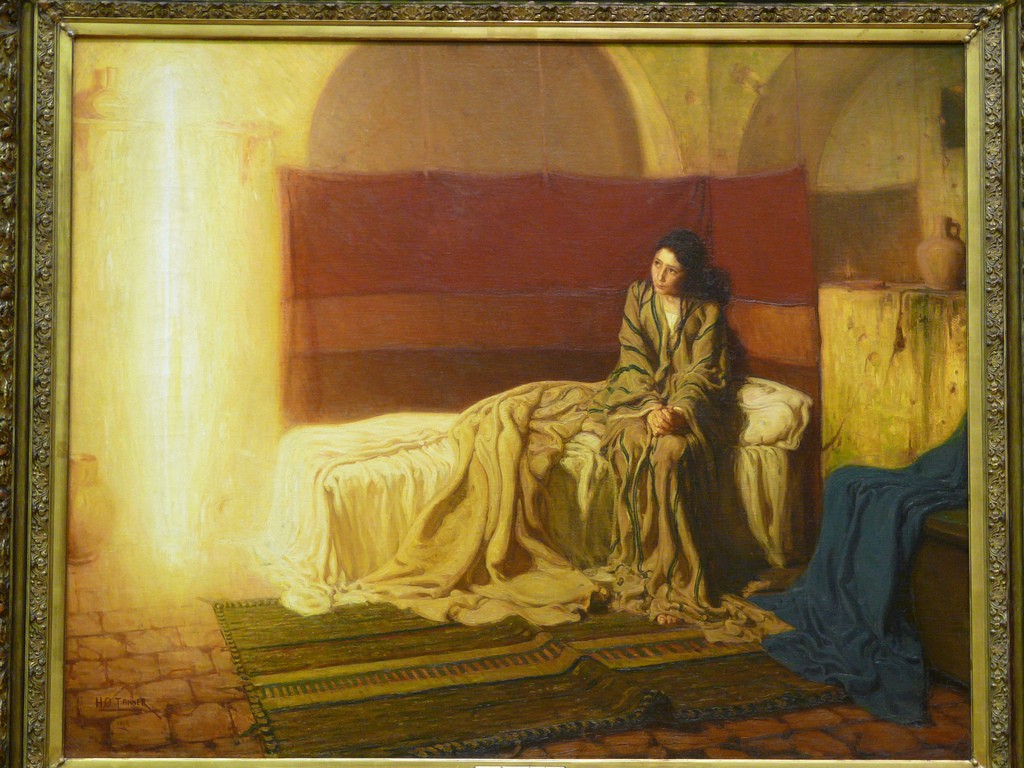
Throughout this season of Advent our focus is “The Story of Christmas in 20 Words.” On each of the 20 weekday mornings ending on Christmas Eve, we’ll spotlight a single word from the Gospel accounts that helps us ponder more deeply the birth of Jesus.
5. How
When the angel Gabriel appears to a Jewish peasant girl and throws her a curveball that will shatter forever any chance for her to have a normal life, she’s free to ask any question that comes to mind.
For instance, Mary might ask:
Who do you think I am, anyways?
What’s my fiancé going to do when he hears about this?
Where am I supposed to hide for the next nine months?
Why in the world did this task come to me?
Instead, she asks something entirely practical. She simply wants to know how.
“How is this supposed to happen, since I’ve never slept with a man?” (Luke 1:34)
Gabriel, who has just told Mary that she’s going to bear the world’s long-awaited Messiah, answers poetically: The Holy Spirit will come upon you, the power of the Highest hover over you. Therefore, the child you bring to birth will be called Holy, the Son of God.”
Thus we come to the deepest mystery of the Christmas story – actually, one of the deepest mysteries of the entire human story – the virgin birth of Jesus.
It’s worth pausing to ask what we know about this woman who will bring God’s Son into the world.
Mary was probably quite young, perhaps no older than 14. Since life expectancy during Bible times was somewhere around 40, it was expected that girls would get married not long after entering puberty.
There are good reasons for believing that Mary was anything but shy and retiring. She lived in Galilee, a hotbed of Jewish religious extremism. Those who managed the Jerusalem temple and negotiated Israel’s strained connections with the nation’s Roman overlords tended to play things safe. Politically, they saw no need to rock the boat. But Galileans were famous for their defiance. Although Mary was sentimentalized during the Middle Ages as a calm, unflappable spiritual icon – the perfect embodiment of submission – it’s likely she was fueled by something like revolutionary fervor.
That stands out in the “Magnificat,” the visionary statement she delivers to her cousin Elizabeth in Luke 1:46-55. It is full of sound and fury – the kind of message that would be applauded by any of history’s great social reformers.
God is turning the world upside-down. Everything will go right side-up. The Great Reversal is coming. The rich and powerful will end up losing everything, while the poor and subjugated will finally stand on top. With the arrival of her little boy, God is making it clear that he has begun to do what he always said he would do.
Whatever we think of Mary, we can safely conclude she is not a shrinking violet.
Is the virgin birth a central doctrine of Christianity, something every follower of Jesus needs to affirm?
Conservative Christians of the late 1800s certainly thought so. The Niagara Bible Conference (1895) identified five “essentials” of the faith: the inerrancy of Scripture, Jesus’ atoning death on the cross, his resurrection, his future Second Coming, and his supernatural conception in the womb of Mary – all of which served as proof of his divinity.
Between 1910 and 1915, two wealthy brothers – Lyman and Milton Stewart – commissioned Bible scholars to write a series of articles on mainstream Christianity that were published in 12 short volumes. These booklets were then distributed free of charge to virtually every pastor and Sunday School teacher in America.
The series was called The Fundamentals. People who subscribed to their perspective became known as fundamentalists.
More than a century ago, a fundamentalist was someone who took seriously the core teachings of the New Testament. In more recent decades, sadly, “fundamentalist” has become a derisive label to designate a mean-spirited, close-minded, politically rigid, potentially dangerous outsider.
It’s time we put the “fun” back into “fundamentalist.”
It’s wise for followers of Jesus to identify the essentials of the Christian faith. Since the Bible doesn’t say exactly what those might be, however, good-hearted people will always feel free to disagree. Some teachers are convinced that the virgin birth is highly important. Others consider it to be secondary, or not important at all.
This much we can say: Mary was the only one who could declare with certainty the exact nature of her pregnancy. Scholars have long presumed that Luke must have taken the time to interview her, years after the resurrection, in order to compose his Gospel.
He appears to be saying, “Take Mary at her word. This is what really happened.”
Given the chance to ask any question at all about God’s plan, Mary simply wants to know how.
When it’s time to indicate whether or not she’s willing to be part of that plan, her answer is something that’s been pondered now for 2,000 years – something that has the potential to transform our lives.
That’s where we’ll pick things up next time.
